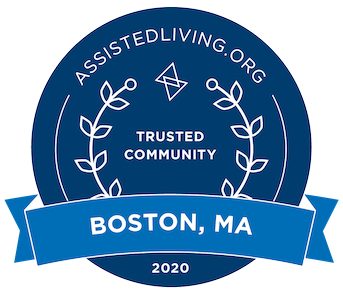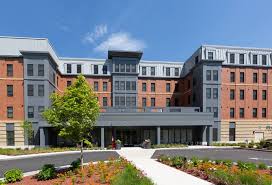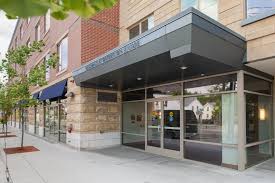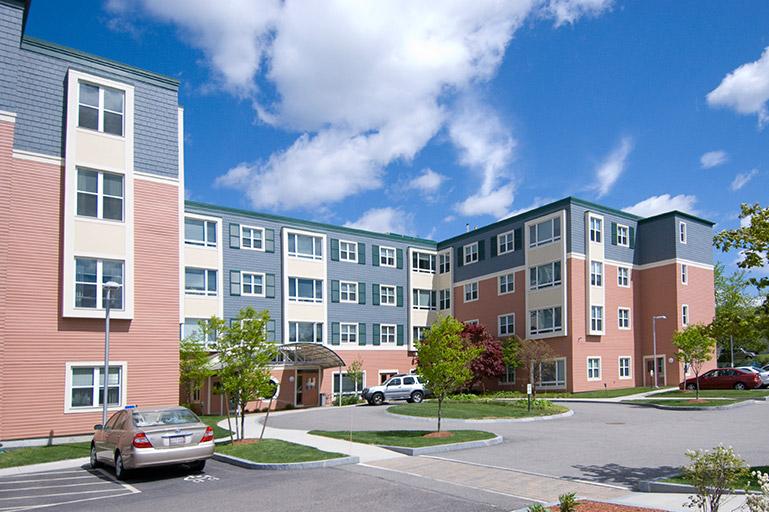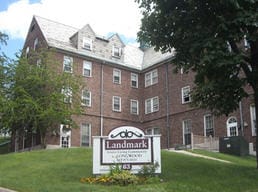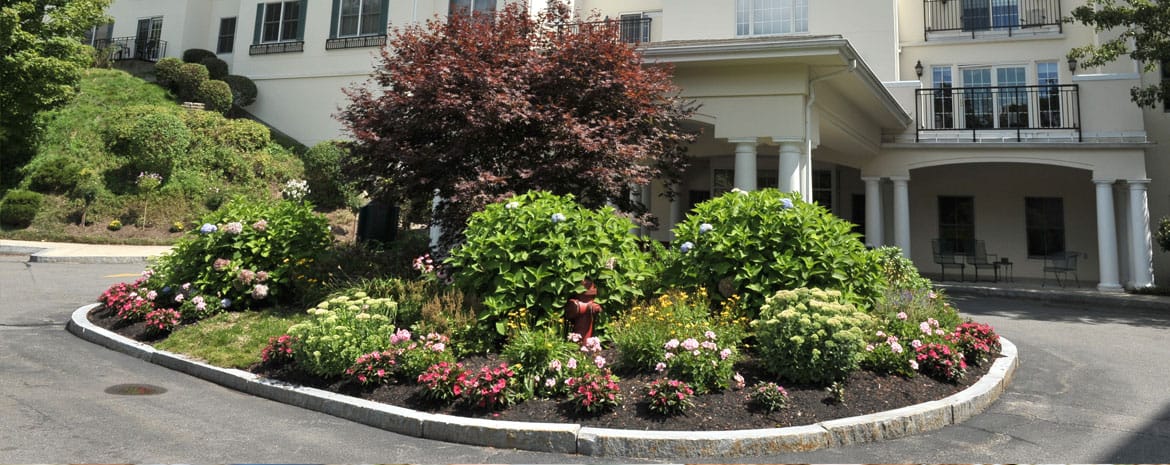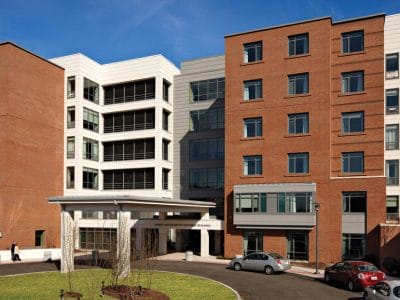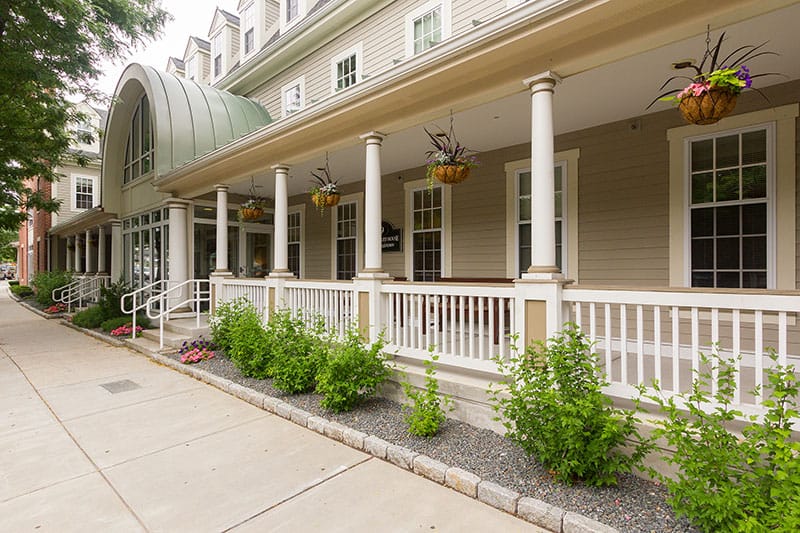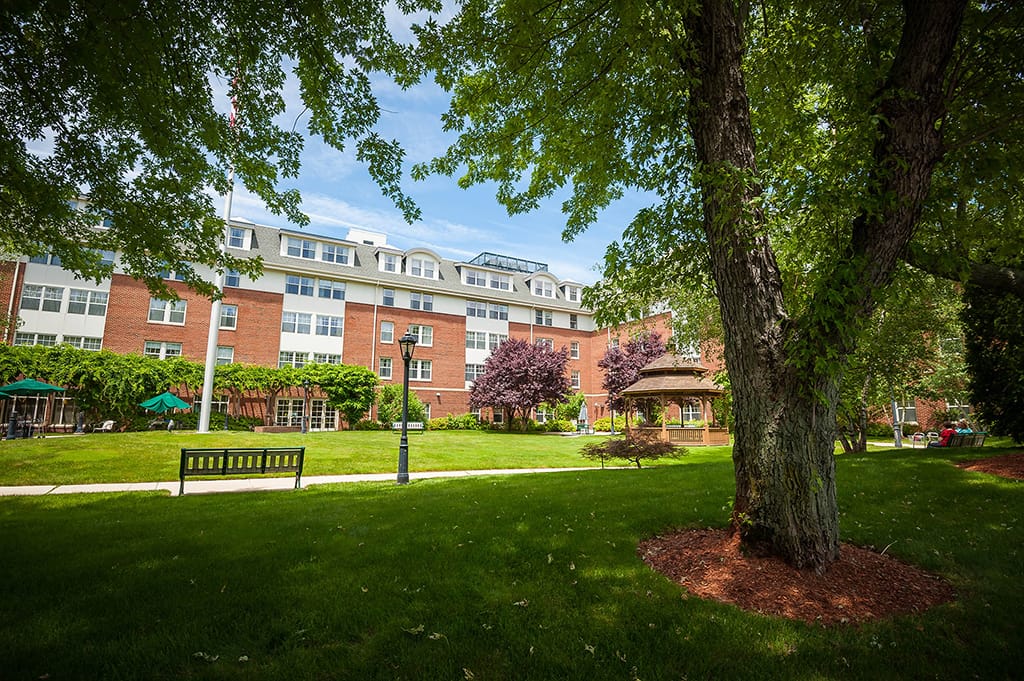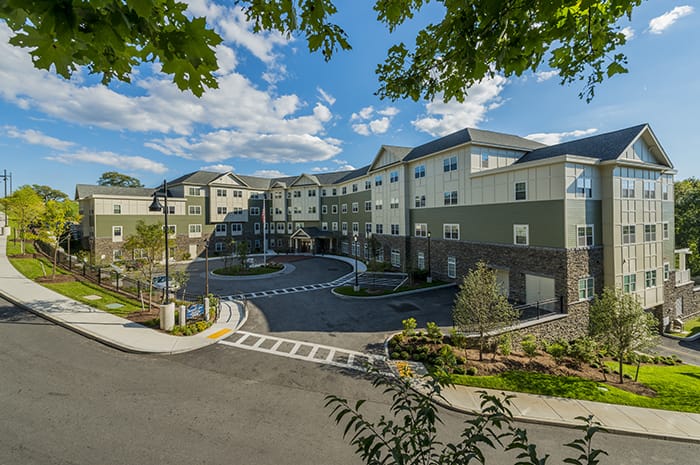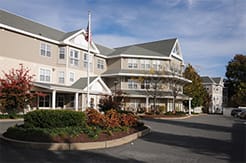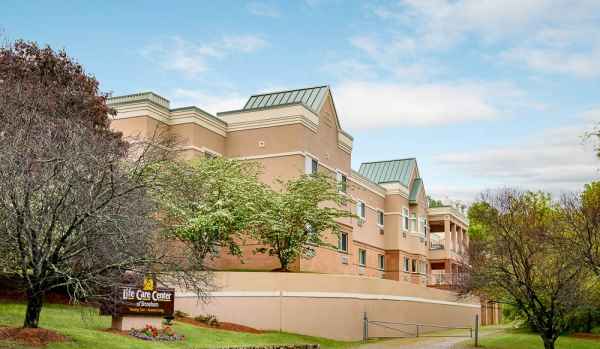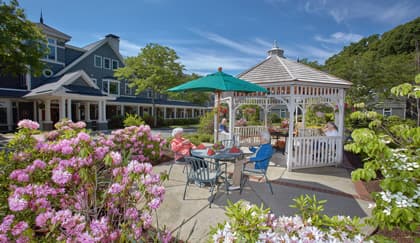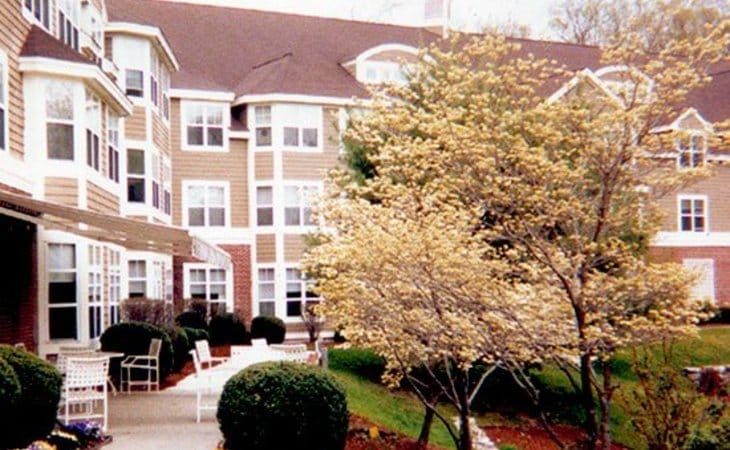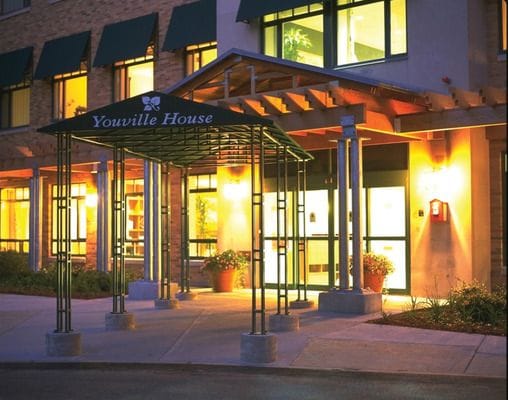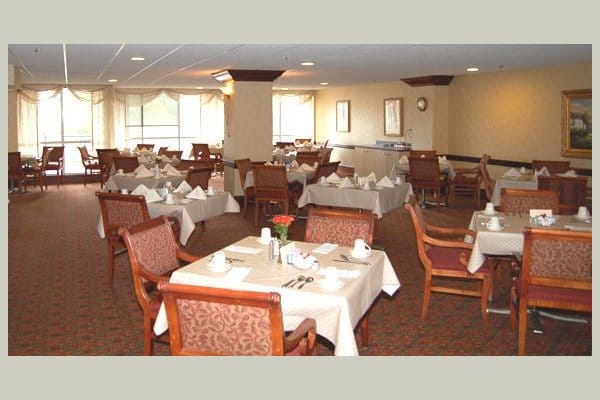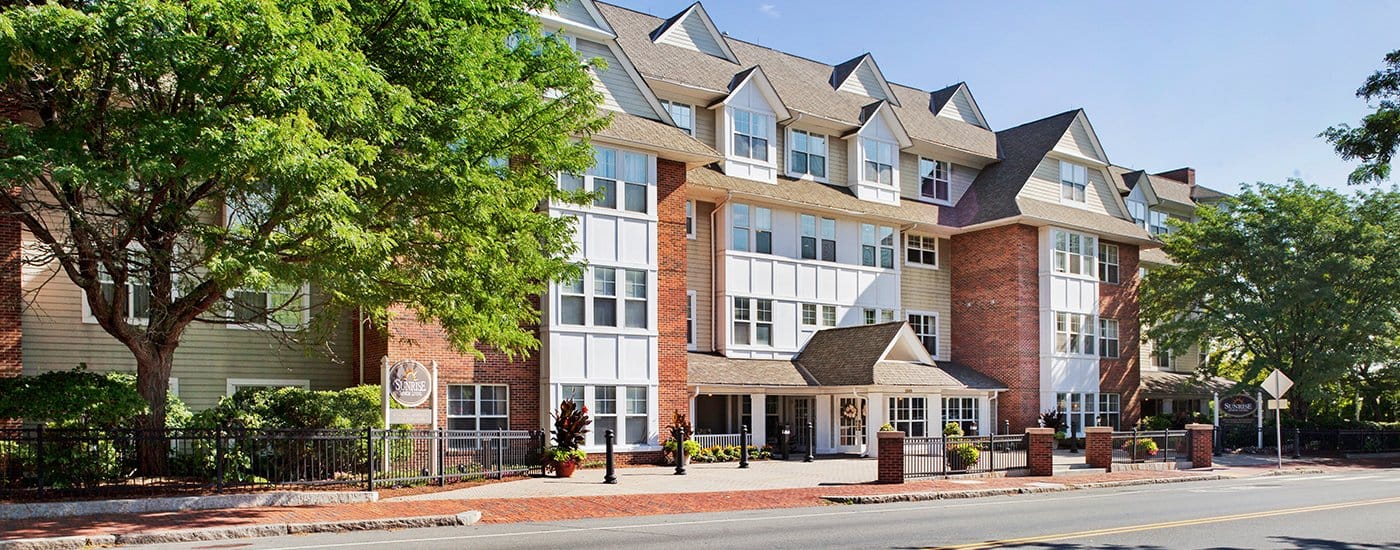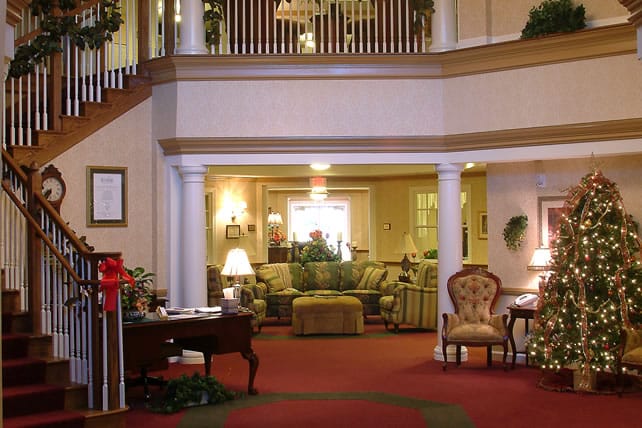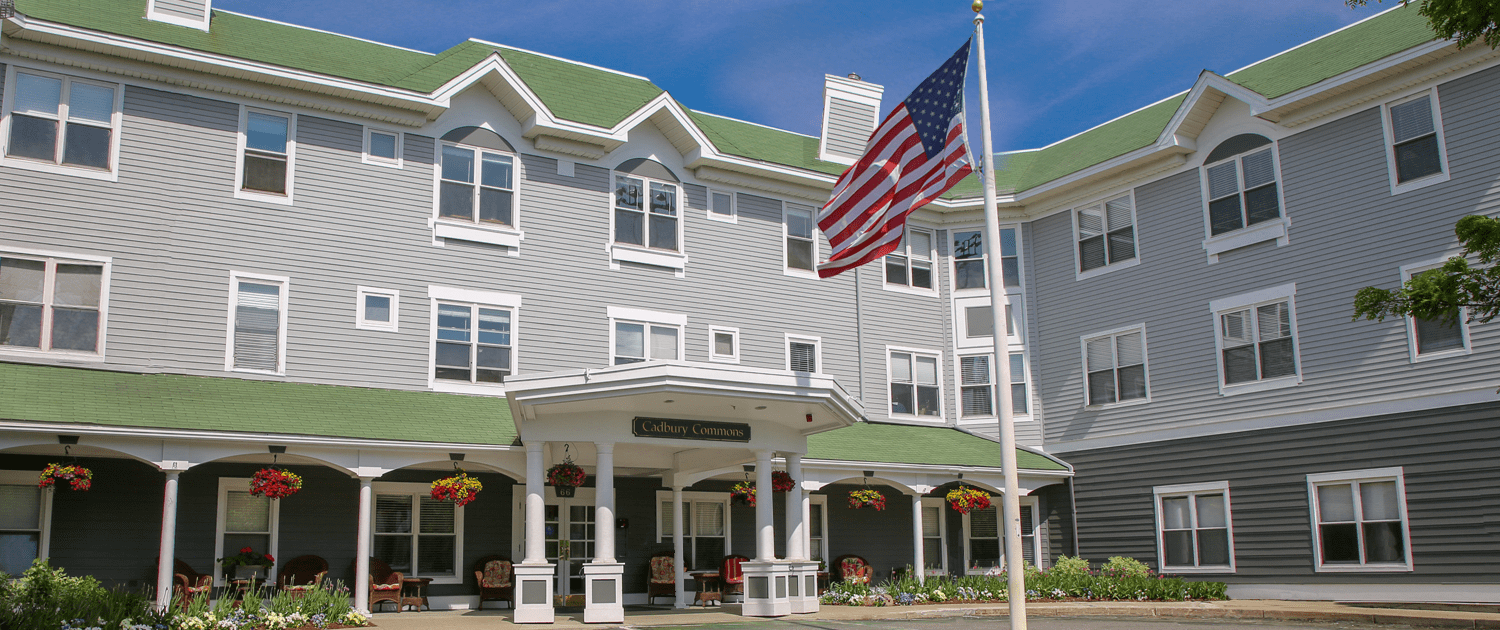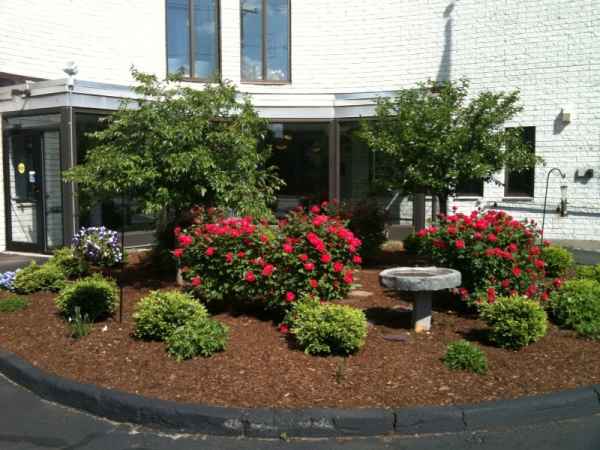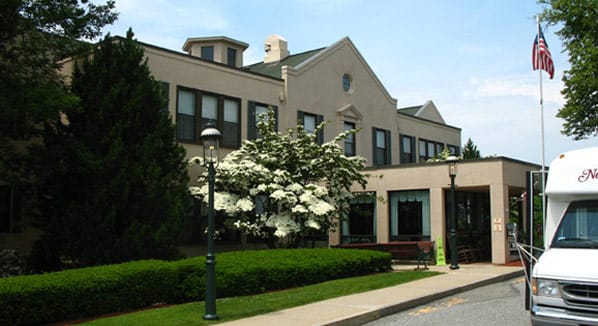In order to find the top assisted living communities in the Boston area, our team of researchers:
- Sorted through 37 communities using our unique methodology
- Spent over 56 hours researching assisted living communities in Boston
- Read more than 295 reviews left by residents and their family members
After filtering out facilities that didn’t meet our high standards, we were left with 21 assisted living communities that earned our seal of approval. Through this process we discovered that the average cost of assisted living in the city of Boston is $6,819, which is higher than the state average of $6,500 and considerably higher than the national average of $4,500.
Read on for in-depth information about the top assisted living facilities in Boston, a brief dive into our methodology for determining the best assisted living communities, and a searchable directory of 30 communities in the Boston area.
Determining how to finance assisted living often starts with the question, “What’s the cost?” In today’s economy, where inflation plays a significant role, having current data is crucial for senior living financial planning. AssistedLiving.org has gathered cost information from its expansive network of over 75,000 senior living providers. This data offers a glimpse into the average expenses for assisted living in Boston and 60 additional cities within Massachusetts.
Boston currently averages $5,017, an increase of about 10% from 2022 to 2023, which is on par with the U.S. average increase. Massachusetts saw a slightly smaller jump of 8% during that same time with current rates of $5,599.
In 2024, prices will continue to increase, with Boston expected to reach $5,403 and the U.S. expected to increase to $4,802. Massachusetts is expected to see an even bigger jump at $6,303. Worcester, Dartmouth and Newton are all also expected to have a 10% increase similar to Boston. Looking at these anticipated increases can help seniors prepare for the increasing expenses.
| Location |
2022 Cost (Historical) |
2023 Cost (Current) |
2024 Cost (Estimated) |
| Boston |
$4,579 |
$5,017 |
$5,403 |
| U.S. Average |
$4,070 |
$4,459 |
$4,802 |
| Massachusetts |
$5,202 |
$5,599 |
$6,393 |
| Worcester |
$5,431 |
$5,950 |
$6,408 |
| Dartmouth |
$4,567 |
$5,004 |
$5,389 |
| Newton |
$5,285 |
$5,790 |
$6,235 |
In Boston, seniors can expect to pay the most for memory care, which offers specialized dementia care. This type of care averages $6,295 per month. Independent living is the most affordable option at $3,249 per month. Assisted living falls somewhere in the middle, typically costing $5,017 per month, and offers support for daily tasks. Seniors can compare the options, including the different levels of care and services, while considering their budget to help them choose.
| Care Type |
Cost |
| Assisted Living |
$5,017 |
| Memory Care |
$6,295 |
| Independent Living |
$3,249 |
Numerous resources are available in Boston, Massachusetts to support seniors during their retirement. AssistedLiving.org has gathered data on local groups, initiatives, and agencies, and organized them according to care categories for convenient access.
For details about resources across the state and in neighboring cities, please visit the Massachusetts state page on assistedliving.org.
Area Agency on Aging
Your local Boston Area Agency on Aging is a valuable resource for retirees, offering guidance on financial aid, in-home care, and long-term care planning. They also link seniors and caregivers to community resources.
| Program Name |
Phone Number |
Description |
| AgeStrong Commission |
617-635-4366 |
Massachusetts houses numerous Area Agencies on Aging (AAAs) that offer valuable support services to older adults. These agencies aid seniors in accessing local programs that cater to their daily requirements, such as caregiver assistance, transportation services, meal programs, and health and wellness resources. AAAs also play a crucial role in combating elder abuse and fraud, empowering seniors to lead lives filled with safety and dignity. |
| Boston Senior Home Care |
617-292-6211 |
Massachusetts houses numerous Area Agencies on Aging (AAAs) that offer valuable support services to older adults. These agencies aid seniors in accessing local programs that cater to their daily requirements, such as caregiver assistance, transportation services, meal programs, and health and wellness resources. AAAs also play a crucial role in combating elder abuse and fraud, empowering seniors to lead lives of safety and dignity. |
| Central Boston Elder Services, Inc. |
617-277-7416 |
Massachusetts houses numerous Area Agencies on Aging that offer valuable support services to older adults. These agencies aid seniors in accessing local programs that cater to their daily requirements, such as caregiver support, transportation services, meal programs, and health and wellness resources. Additionally, AAAs actively combat elder abuse and fraud, empowering seniors to lead lives filled with safety and dignity. |
Financial Assistance for Senior Care
Financial aid is available for seniors in Boston who prefer to age in place. Various local entities provide support for expenses like home care, home adjustments, and utility bills.
| Program Name |
Phone Number |
Description |
| Massachusetts Home Care Program |
617-727-7750 |
Home Care Services provides non-medical assistance to seniors, including personal care, home-delivered meals, and dementia day care. It also offers coverage for home-use adaptive equipment like ramps, making it ideal for seniors with mobility challenges. |
| Massachusetts Frail Elder Waiver |
800-243-4636 |
The Frail Elder Waiver provides financial assistance for seniors living at home or with a relative who provides care. It covers both medical and non-medical expenses, including skilled nursing and personal care. This includes seniors living in congregate housing. |
Financial Assistance for Senior Care and Senior Living
Seniors in Boston, whether residing independently or in a senior living facility, have access to various local financial aid options. These entities assist in offsetting certain in-home or long-term care expenses and link them to beneficial community resources.
| Program Name |
Phone Number |
Description |
| Program of All-inclusive Care for the Elderly (PACE) – Boston |
|
PACE agencies offer a comprehensive range of Medicaid and Medicare services, bridging the gaps in care for seniors who utilize both programs. With coverage for medical and non-medical services, PACE supports seniors who choose to remain at home. However, availability may vary in Massachusetts, so it’s important to verify participation in your area before applying. |
Food Assistance Programs
In Boston, various local initiatives are dedicated to promoting senior health through balanced nutrition. They offer services like meal delivery, communal dining, and food banks, ensuring elderly residents have access to affordable, nutritious food.
| Program Name |
Phone Number |
Description |
| Elderly Nutrition Program – Boston |
617-357-0226 |
Meals on Wheels agencies in Massachusetts provide nutritious meals to adults aged 60 and above. Each branch has unique delivery schedules and recommended donation per meal, but all serve seniors regardless of income. No senior will be denied a meal based on their ability to pay. |
| Greater Boston Food Bank |
617-427-5200 |
The Greater Boston Food Bank in Boston, MA provides assistance to seniors and others facing food insecurity. With over 600 food pantries, soup kitchens, meal programs, and senior centers, individuals can request help. The organization offers distribution sites and mobile food markets across Eastern Massachusetts. Additionally, they assist recipients in applying for SNAP benefits and free food from the USDA’s Commodity Supplemental Food Program. Visit their website for more information. |
| Haley House Food Pantry |
617-236-8132 |
Haley House Food Pantry provides nutritious groceries to residents in need in Boston’s South End and Roxbury neighborhoods. Community members, including seniors, can access fresh fruits, vegetables, and other healthy food items to stock their pantries. The pantry operates on Thursdays, with ticket distribution starting at 7 a.m. and grocery bag pick-up at 10 a.m. |
Free Used Medical Equipment
In Boston, numerous groups are addressing the steep expense of new medical equipment. They gather gently used items like wheelchairs, ramps, and walkers, providing them to local seniors and individuals in need.
| Program Name |
Phone Number |
Description |
| Assistive Technology Regional Centers – Boston |
800-244-2756 |
MassMATCH is a program in Massachusetts that provides short-term loans to ensure equal access to assistive technologies for those who need them the most. The program aims to maximize accessibility and support individuals in acquiring the necessary assistive devices. |
Health Insurance & Prescription Drug Coverage for Seniors
Seniors in Boston with specific income levels can tap into local resources for prescription drug cost assistance. They may also qualify for health insurance and other schemes offering free or discounted medical services.
| Program Name |
Phone Number |
Description |
| ConnectorCare – Boston |
877-623-6765 |
ConnectorCare plans are designed to assist individuals with incomes below 300% of the federal poverty level. It is important to ensure that the plan you choose adequately covers your medical care and prescription drug requirements, as multiple insurers offer ConnectorCare plans. |
Home Repair and Modifications
In Boston, numerous programs are available to aid seniors and individuals with disabilities in financing home modifications and repairs. These programs, offering grants or loans, have diverse eligibility requirements specifically designed for retirees.
| Program Name |
Phone Number |
Description |
| Massachusetts Home Modification Loan Program (HMLP) |
866-500-5599 |
The Home Modification Loan Program offers interest-free loans to older residents, enabling them to customize their homes according to their requirements. Repayment of the loans is made upon the sale of the property or transfer of the title deed. |
| Weatherization Assistance Program (WAP) – Boston |
617-357-6012 |
The Weatherization Assistance Program aims to enhance energy efficiency and safety in seniors’ homes, resulting in lower utility expenses. By improving insulation and addressing potential hazards, this program helps seniors enjoy comfortable and secure living spaces. |
Legal Resources
In Boston, numerous agencies provide affordable or complimentary legal assistance to the elderly. They offer counsel on matters like estate management, living wills, and power of attorney. Some even serve as advocates for seniors’ rights in long-term care facilities.
| Program Name |
Phone Number |
Description |
| Greater Boston Legal Services |
800-323-3205 |
Greater Boston Legal Services offers free legal assistance to adults aged 60 and above in the greater Boston area. It is a network of volunteer lawyers who provide civil legal aid to low-income individuals in the region. Their services cater to the needs of older adults, covering areas such as abuse and neglect prevention, consumer rights, health care benefits, and government benefits. |
Senior Centers
In Boston, senior centers serve as a hub for older adults, providing recreational activities, events, and valuable resources. These centers also offer wellness programs, nutritional guidance, and assistance with senior-related concerns.
| Program Name |
Phone Number |
Description |
| Easterseals Massachusetts Senior Services – Boston |
800-244-2756 |
Easterseals Massachusetts offers a long-term device loan program for individuals with low incomes who cannot afford medical equipment for home use. This service provides assistive technology, including phones with large tactile buttons, wrist-cuff blood pressure monitors, and screen reading devices. |
Social Security Offices
In Boston, Social Security offices provide essential services to seniors and individuals with disabilities. They offer guidance on retirement benefits, disability allowances, and Supplemental Security Income.
| Program Name |
Phone Number |
Description |
| Boston Social Security Office |
800-772-1213 |
Social Security provides income for retirees and individuals unable to work due to disability. Funding is derived from payroll taxes paid by employers, employees, and self-employed individuals. Upon retirement, monthly payments are determined by previous earnings. |
Utility & Energy Bill Assistance
Organizations are available to aid low-income seniors in Boston struggling with home maintenance costs, including utility and energy bills. Emergency funding may also be accessible for those at risk of utility service termination due to unpaid bills.
| Program Name |
Phone Number |
Description |
| Massachusetts Fuel Assistance Programs |
617-573-1100 |
Massachusetts Fuel Assistance Programs provide support to seniors in covering home heating expenses during harsh winters. Eligible residents receiving SNAP or other low-income benefits can apply for the Low Income Home Energy Assistance Program (LIHEAP) and avail discounted utility rates. LIHEAP applications open on October 1. Seniors may also qualify for emergency funding from the Salvation Army Good Neighbor Fund or Joe-4-Oil. |
| Fuel Assistance (LIHEAP) – Boston |
617-357-6012 |
The Low Income Home Energy Assistance Program offers financial support to seniors for their winter heating bills. Seniors can apply without any fees and contact their local service providers for assistance, which is provided free of charge. |
| Massachusetts Low Income Home Energy Assistance Program (LIHEAP) |
617-573-1100 |
The Massachusetts Low Income Home Energy Assistance Program (LIHEAP) helps eligible seniors pay for their home heating bills. To qualify, residents must have income equal to or below 60% of the estimated state median income. Applications can be submitted online starting October 1 or in person at local LIHEAP agencies. Required documents include a photo ID, a list of household members, income proof, and a copy of a heating bill. |
Veteran’s Services
Veteran services in Boston offer invaluable assistance to retired military personnel. These local entities guide veterans in utilizing their rightful benefits and provide counsel on diverse matters.
| Program Name |
Phone Number |
Description |
| Boston Vet Center |
857-203-6461 |
The Boston Vet Center offers free and confidential counseling services for veterans and service members. Our licensed counselors specialize in the Gottman Method for couples therapy, as well as family, grief, and bereavement counseling. We also provide counseling for mental health issues such as PTSD, depression, anger, aggressive behavior, and substance abuse. Our evidence-based treatments include cognitive behavioral therapy, cognitive processing therapy, and prolonged exposure. We are committed to supporting the unique needs of female, minority, and first-response veterans. |
| VA Boston Healthcare System, Jamaica Plain Campus |
617-232-9500 |
The Jamaica Plain Campus of the VA Boston Healthcare System is a comprehensive medical center for veterans, offering a wide range of primary and specialty services. Our facility provides amputation care, optometry, physical therapy, arthritis treatment, oncology, and pulmonary medicine. We also offer on-site radiation oncology, imaging, hospice care, pathology, and a full-service pharmacy. Veterans can receive support with mobility devices and long-term follow-up services. |
Assisted Living Communities in Boston are required to follow a set of rules and regulations that are determined by the state. For an overview of those rules and regulations, see the information below. For more specific information, talk with your local community or Area Agency on Aging.
